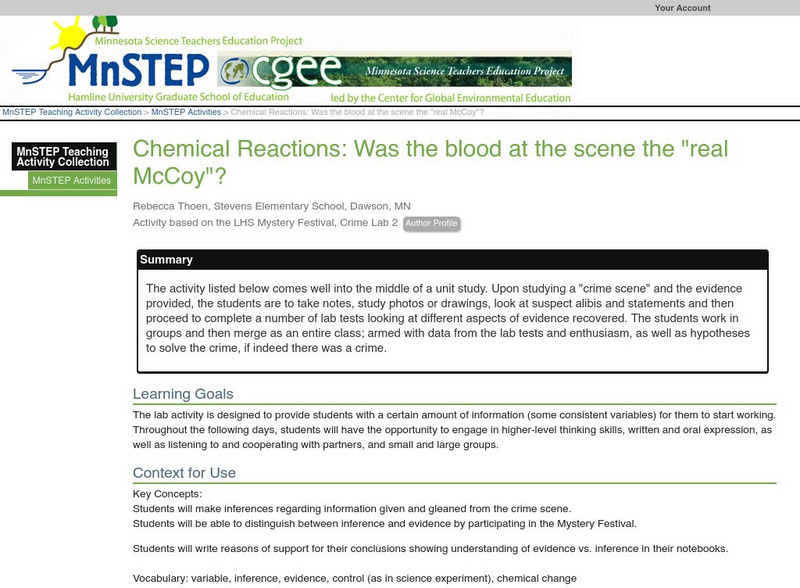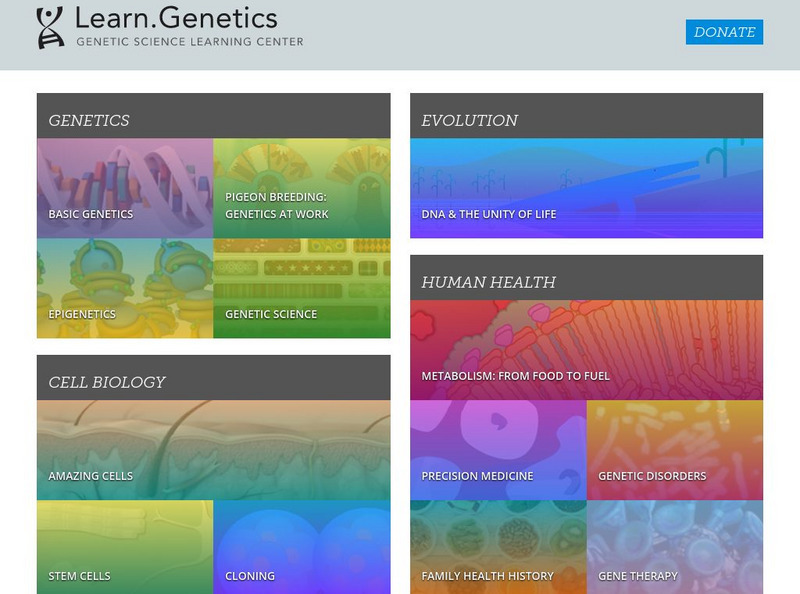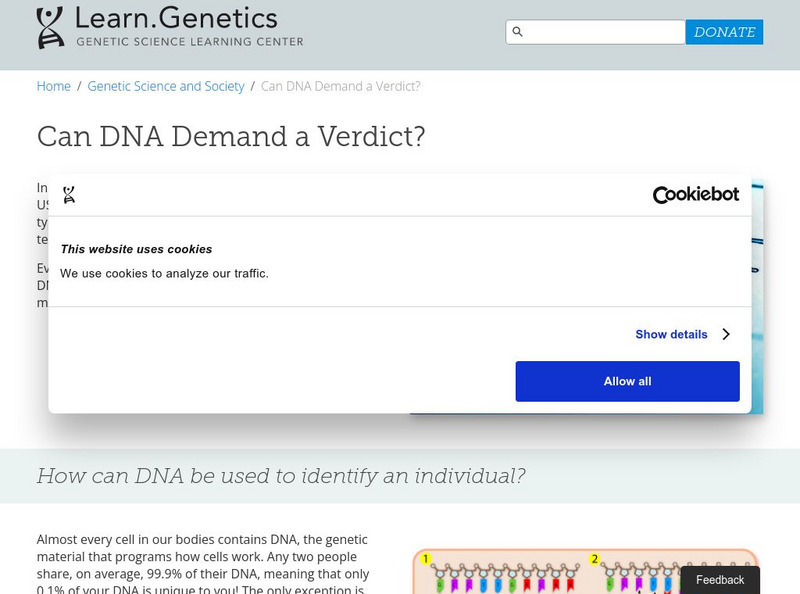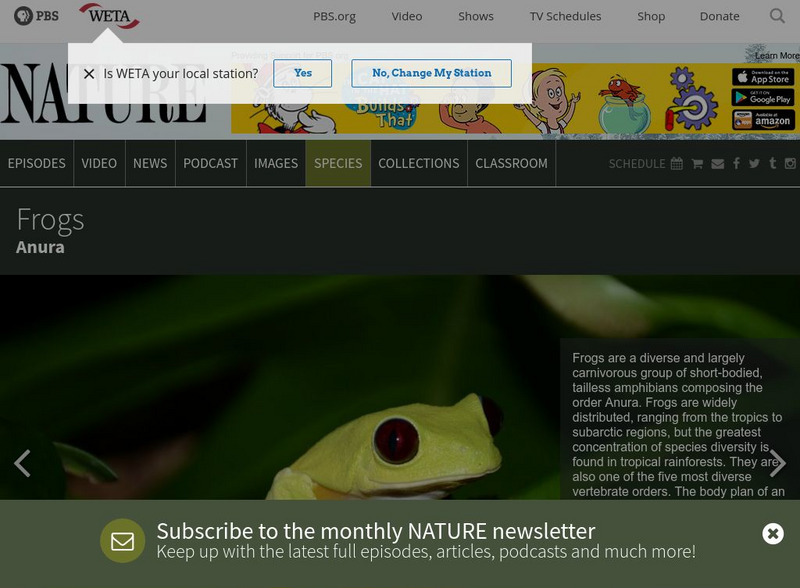Curated OER
Circulatory System Travel Brochures
Students study the human circulatory system including the role of the heart. They design brochures that describe a voyage through the human circulatory system.
Curated OER
Fats
Students are introduced to the characteristics of fats and their function in the body. In groups, they make a reduced fat recipe of chicken fingers and discuss other ways to reduce fat in their diet. To end the lesson, they identify...
Curated OER
Lung Disease
Middle schoolers simulate breathing for a smoker and someone with a chronic lung disease. In this health science lesson, students examine the short and long term effects of smoking. They write a persuasive argument against it.
Curated OER
Mixing Colors
Fifth graders perform experiments with color mixing and color changing. They observe the differences between physical and chemical changes and record their observations in journals.
Curated OER
Hunting for Hidden Fat
Students investigate the importance of fat in the diet. They determine the difference between solid and liquid fat. They examine food labels to identify the ones that contain fat.
Curated OER
Birds of Wisconsin
First graders explore the job done by ornithologists. They role play identifying the characteristics that make a bird a bird. They discuss what makes each bird species unique. Students are introduced to Wisconsin's most common and rare...
Bryn Mawr College
Serendip: Using Blood Tests to Identify Babies and Criminals
Brief text summary of what students learn in the Using Blood Tests to Identify Babies and Criminals lab along with links to download Student Handouts and Teacher Preparation Notes in PDF and Word formats. The lesson includes two...
Science Education Resource Center at Carleton College
Serc: Chemical Reactions: Was the Blood at the Scene the "Real Mc Coy"?
The activity listed below comes well into the middle of a unit study. Upon studying a "crime scene" and the evidence provided, the students are to take notes, study photos or drawings, look at suspect alibis and statements and then...
ClassFlow
Class Flow: Blood and Lymph
[Free Registration/Login Required] A Power Point from the American Red Cross was converted into Active Studio with other pages added to cover the topic of blood including types of cells, blood types, blood disorders, and the lymphatic...
University of Utah
University of Utah: Genetic Science Learning Center: The Basics and Beyond
This website offers a clear definition of the science of Genetics, highlighting DNA and genes. There is a neat, easy-to-understand animated tour of the basics and an opportunity to go inside an animated cell. Student can build a DNA...
University of Utah
University of Utah: Genetic Science Learning Center: Heredity and Traits
The Genetic Science Learning Center presents the world of heredity and traits including activities to better comprehend the science, clear explanations of aspects of heredity, and an interactive opportunity.
University of Utah
University of Utah: Genetic Science Learning Center: Dna and Verdicts
Part of a site on genetics, this page explores DNA as a forensic science. Explains how and why DNA can be used to convict or acquit a criminal from wrongdoing using forensic DNA analysis. Teacher resources too.
PBS
Pbs Nature: Frogs and Toads
Do you know how to tell the difference between a frog and a toad? This site provides interesting facts and information about this type of amphibian from where they live to what they eat and more.
Biology Pages
Kimball's Biology Pages: Animal Circulatory Systems
This page has information on different types of animal circulatory systems. Scroll to the bottom of the page to find out about mammals.















